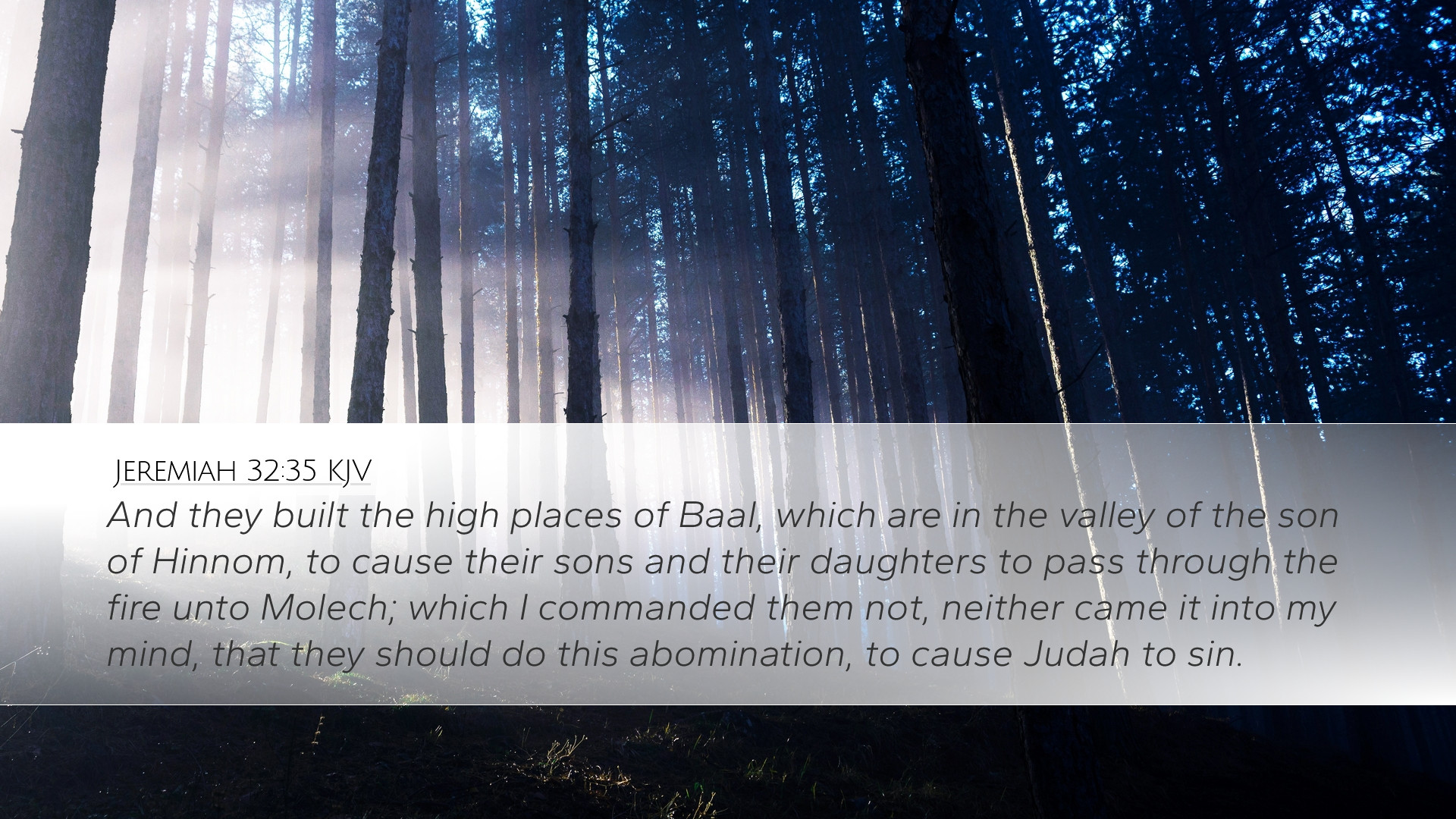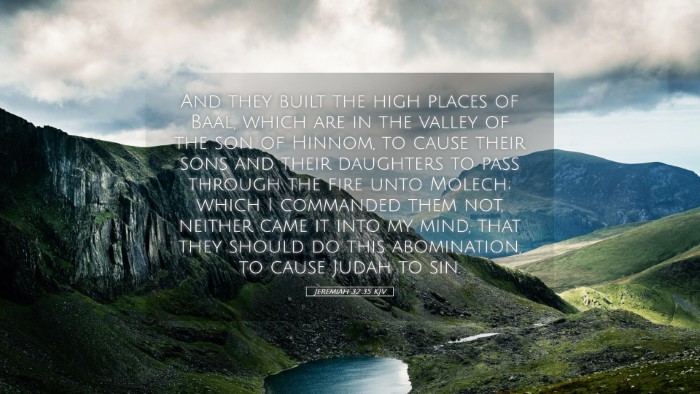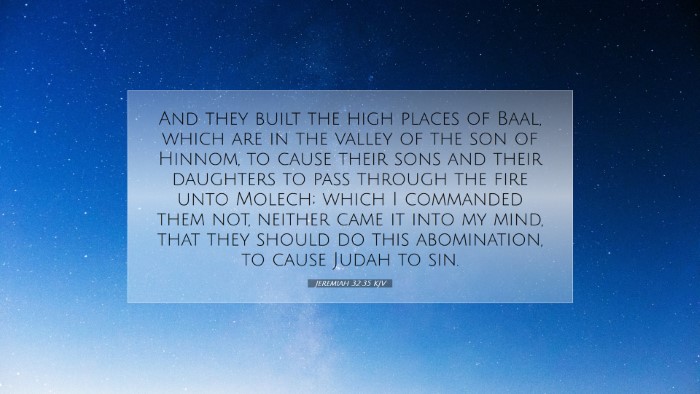Commentary on Jeremiah 32:35
Jeremiah 32:35 states: "And they built the high places of Baal, which are in the valley of the son of Hinnom, to cause their sons and their daughters to pass through the fire unto Molech; which I commanded them not, neither came it into my mind, that they should do this abomination, to cause Judah to sin."
Contextual Overview
The Book of Jeremiah is a profound source of prophetic literature addressing the impending judgment on Judah due to their persistent idolatry and disobedience to God's commands. Jeremiah’s prophecy occurs during the latter days of the kingdom of Judah, when idolatry was rampant, particularly the worship of Baal and Molech. This verse encapsulates the unthinkable sin committed by the people of Judah—child sacrifice—which was a paramount indication of their total deviation from true worship.
Historical Background
In the ancient Near East, the worship of various gods involved a myriad of rituals, with child sacrifice being one of the most horrendous practices associated with the worship of Molech. This was often done in the valley of Hinnom, a site that became synonymous with idolatry and later seen as a cursed place. The practice of offering children in sacrifice reflects a deep moral depravity and a complete rejection of God's sovereignty.
Insights from Public Domain Commentaries
Matthew Henry Commentary
Matthew Henry emphasizes that the sin of Judah was fundamental in its nature. He notes that the children were sacrificed to Molech to gain favor or to ensure prosperity. This act was not merely an abstract sin but one that caused profound societal harm, signifying a betrayal of parental duty and abandonment of divine statute. Henry stresses that God did not just disapprove of this act; it was entirely foreign to His mind and purposes.
Albert Barnes Commentary
Albert Barnes points out the horror of this practice and its implications for the identity of God's people. He highlights that the construction of high places for Baal, particularly in the valley of Hinnom, illustrated the extent of Judah's worship of foreign deities. Barnes also notes that the phrase "neither came it into my mind" draws attention to God's utter rejection of such practices, further asserting the righteousness of divine judgment upon Judah. This declaration underscores the intentionality behind God's commands—religious fidelity was paramount, and the people exhibited flagrant disobedience.
Adam Clarke Commentary
Adam Clarke expands on the nature of the idolatry, describing how the rituals associated with Molech involved not just acts of fire but also significant cultural and spiritual corruption. He reflects on the psychological and social factors that may have driven such practices, suggesting that fear of loss, desire for blessing, and societal pressures contributed to the people's choices. Clarke affirms that this abominable act was not only a violation of God's commandments but served to illustrate the complete moral collapse of a society that had forgotten its covenant with Yahweh.
Theological Implications
This verse prompts significant theological reflection. It calls into question how a society can descend into such depravity—and reminds readers of the ever-looming danger of syncretism, where the worship of God is mingled with secular and foreign beliefs. Scholars and theologians may find parallels in contemporary issues of compromise within the church, where cultural values can sometimes override scriptural mandates.
Idolatry in Contemporary Context
The warnings of Jeremiah resonate today, as modern believers grapple with various forms of idolatry. The sacrifices made in pursuit of success, popularity, or acceptance often mirror the ancient practices condemned by the prophets. Christians are reminded to remain vigilant against compromising their convictions for the sake of cultural relevance or personal gain.
Conclusion
Jeremiah 32:35 serves as a haunting reminder of the severe consequences of turning away from God. Commentators reveal that every sin has its repercussions, not just on an individual level but as a societal tragedy. For pastors, students, and scholars, this verse encapsulates the importance of fidelity to divine instruction and exemplifies the grave outcomes of disobedience. Through the lens of history and theology, we are invited to examine our own practices against the backdrop of Scripture, ensuring that our devotion remains untainted by the allure of contemporary idols.


